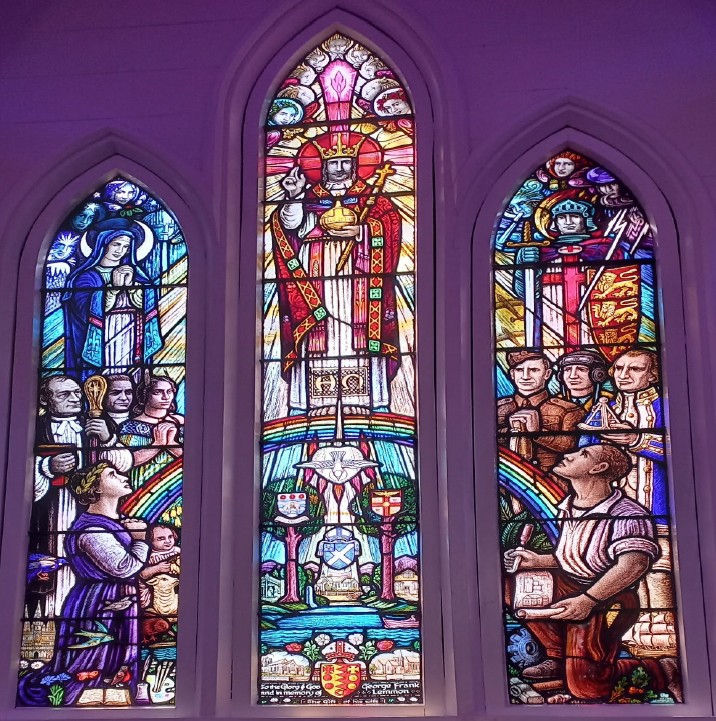Reflection by Reverend Dr Deborah Broome
- biancasnee
- May 8, 2025
- 2 min read
The Lord is my shepherd; I shall not want. He makes me lie down in green pastures; he leads me beside still waters; he restores my soul. He leads me in right paths for his name’s sake.
Even though I walk through the darkest valley, I fear no evil, for you are with me; your rod and your staff, they comfort me.
You prepare a table before me in the presence of my enemies; you anoint my head with oil; my cup overflows. Surely goodness and mercy shall follow me all the days of my life, and I shall dwell in the house of the Lord my whole life long.
Psalm 23 (A Psalm of David)
This Sunday, the 4th Sunday of the Easter season, is known as Good Shepherd Sunday. We have Psalm 23 “The Lord is my shepherd; I shall not want” – probably the most famous psalm of all – and we hear a passage from the Good Shepherd sections of John 10. I suspect many of us think of the black singlet, red bands wearing, quad bike riding kind of shepherd – but this is something quite different. Back in ancient Israel the role and title of “shepherd” were used for leaders. It’s a royal image.
Psalm 23 is traditionally ascribed to King David, who went from tending actual sheep to being Israel’s greatest king. So when he says, “the Lord is my shepherd” it’s this king saying “the Lord is my leader.” The opening words of Psalm 23 in the Latin are “Dominus regit me” – the Lord rules me: that captures what’s going on here.
We have leaders too, whether that’s in politics, within the church, chief executives, school principals, or in any other field. What about our leaders? If King David could declare “The Lord is my ruler” do our leaders also live lives of radical dependency on God? Do we live like that ourselves? And how does that affect how we treat others?
If God is indeed our shepherd what does that shepherding look and feel like? Where and how do we let God reign over us? And how do we feel about being “sheep”? Part of “the Lord is my shepherd, I shall not want” is the implication that God is the only real necessity of life, and if we have God we indeed have everything that we need. It's easy to say, but are we living into that fundamental statement of trust?
The psalm says, “surely goodness and mercy shall follow me all the days of my life” but the actual sense of the Hebrew is more like God’s goodness and mercy “pursuing us.” One of the things about sheep is that they’re pretty defenseless, and they can’t run fast enough to escape from something chasing them. Can we therefore imagine ourselves as sheep going through our days being pursued by God’s goodness and mercy. Will we allow ourselves to be caught by one who loves us?




Comments